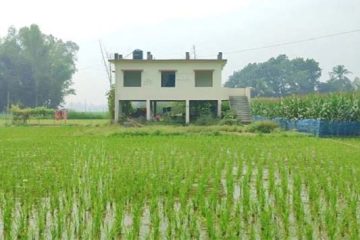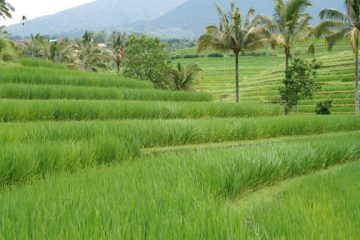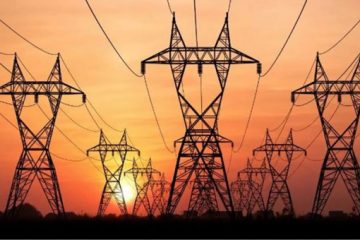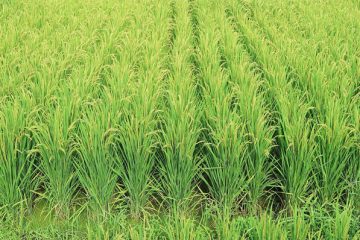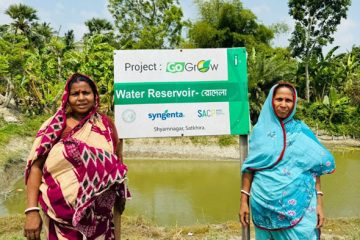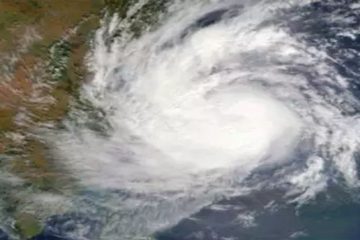Ethnic minorities suffer more
Suzon Ali . Rajshahi
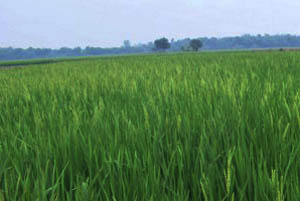 Farmers in the Barind region are held hostage by Barind Multipurpose Development Authority deep tube well operators.
Farmers in the Barind region are held hostage by Barind Multipurpose Development Authority deep tube well operators.
Some farmers in the region said that deep tube well operators did not irrigate their land properly while others said that operators extracted extra money and ‘undue benefits’ from them.
Talking with New Age, farmers in all the nine upazilas of Rajshahi district alleged various irregularities, corruption and nepotism against BMDA deep tube well operators.
On March 23, two Santal farmers — Abhinath Mardi and his cousin Rabi Mardi — drank pesticides at the BMDA deep tube well site at Ishwaripur village of Godagari upazila, after they were denied water for their paddy fields by operator Sakhawat Hossain for 12 consecutive days.
Abhinath died at home at about 9:00pm on the day while Rabi succumbed to the poisoning on March 25 during treatment.
Abhinath’s wife Rozina Hembrom filed a case against DTW operator Sakhawat on March 25 on charge of abetting the suicide of her husband.
In the case statement, Rozina alleged that her husband planted rice seedlings on one and a half bighas of his family land.
‘My husband had visited BMDA deep tube well operator Sakhawat Hossain for 12 days in a row to irrigate the paddy field in Ishwaripur, but the operator did not pay heed to his repeated requests,’ she alleged.
On March 23, the two brothers said that they would commit suicide as their lands had dried up and the paddy plants had begun to die, she mentioned.
But, she added, instead of irrigating the paddy lands, Sakhawat asked them to drink pesticide.
The BMDA and the agricultural ministry formed two separate committees to investigate the deaths of the farmers.
According to its officials, the BMDA has set up 15,796 deep tube wells in 18 districts of Rajshahi and Rangpur divisions, covering some 5 lakh 40 thousand hectares of land under irrigation.
This year, boro paddy is being cultivated in more than 41,500 hectares of land in Rajshahi alone under 2,826 BMDA deep tube wells.
According to the officials, the BMDA introduced digital prepaid cards for the region’s farmers in 2005 and they are charged Tk 115 and Tk 125 through the cards for electricity consumption per hour for water for one- and two-cusec motors respectively.
At these rates, irrigating one bigha of land does not cost more than Tk 1500, officials and farmers said.
But farmers in all the nine upazilas alleged that the DTW operators were taking Tk 1,800 to Tk 3,000 per bigha from them while some operators were forcing them to use operators’ cards and charging Tk 250–500 from them per hour.
Ajmat Ali, a farmer of Rishikul village under Godagari upazila, said that the tube well operators in his locality were charging them Tk 3,000 for irrigating each bigha of land.
‘If anyone speaks or protest against the decision of the operators, their land is left unirrigated,’ he complained.
Amir Hasda, a farmer of Nimghutu village in the upazila, said that the BMDA operators had long been harassing ethnic minority people with regards to the irrigation of their land.
‘Though we pay the operators in time, they do not irrigate our land properly and on time, resulting in poor yields,’ he alleged.
Another farmer, Maheshan Murmu, said that he cultivated boro paddy in three bighas of land this season.
‘I received water for my land twelve days after making the payment in the past season. Half of the farmers in this area are of ethnic minorities. Their lands are not irrigated properly and on time while the deep tube well operators water the lands of those “close” to them and of the influential people,’ he alleged.
Nader Ali, a farmer of Kalma village in Tanore upazila, accused that he had to pay Tk 2,200 per bigha for cultivating boro paddy.
‘If I do not pay the operator [the amount he wants], I fear that I will not be able to cut the crop and bring it home,’ he said.
Several farmers also alleged that DTW operators had denied them water and helped well-off farmers buy or take lease of their lands in exchange for money.
Abdul Majid, a farmer of Palpur village, said that many operators became extremely rich in a matter of years after the installation of water pumps in their areas.
He further alleged that the tube well operators illegally collected crops from farmers in the name of meeting costs of maintenance of the equipment needed to supply water to the fields.
‘They also take money from us when tube wells go out of order,’ he added.
Farmers in Tanore upazila alleged that operators leased large areas under their deep tube well coverage to outside traders without taking the consent of the farmers.
Ibrahim Khalil, a retired army officer of Kachua mouza in Tanore upazila, said that the deep tube well operator in his locality leased a big area under his tube well
coverage to outsider traders and forced them to cultivate potatoes instead of paddy.
Later, the operator was withdrawn after he and six other farmers lodged a complaint with the upazila nirbahi officer and the chair of the irrigation committee against the operator.
Mukul Hossain, a DTW operator in Loblobi area of the upazila, who was collecting Tk 700 extra from each farmer, said that it cost a lot to run a deep tube well and they were left with nothing for them.
Operator Ayaz Uddin of Krishnapur area, who was taking Tk 1,600–2,000 per bigha, said that he was taking the extra amount as the electricity cost was higher this year compared with the previous year.
Contacted, BMDA executive director Abdur Rashid told New Age that they received complaints from farmers in this regard and terminated one or two operators.
He went on to say that most of the time farmers did not lodge any complaint with them and therefore they could not take any action in this regard.
According to Professor Chowdhury Sarwar Jahan of the geology and mining department at Rajshahi University, a kind of feudal practice is going on in Barind villages over supplying water, with those in command of the deep tube wells controlling ‘everything’ in villages.
‘The project authorities do little in ensuring good governance in irrigation projects’, he said, adding that the authorities need to protect the irrigation sector from malpractices and ensure a proper management in it.
Article originally published on New Age

